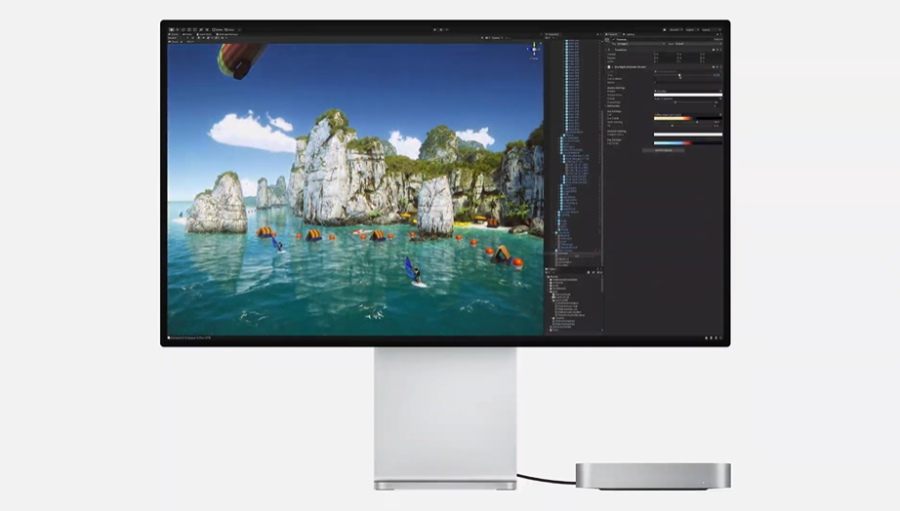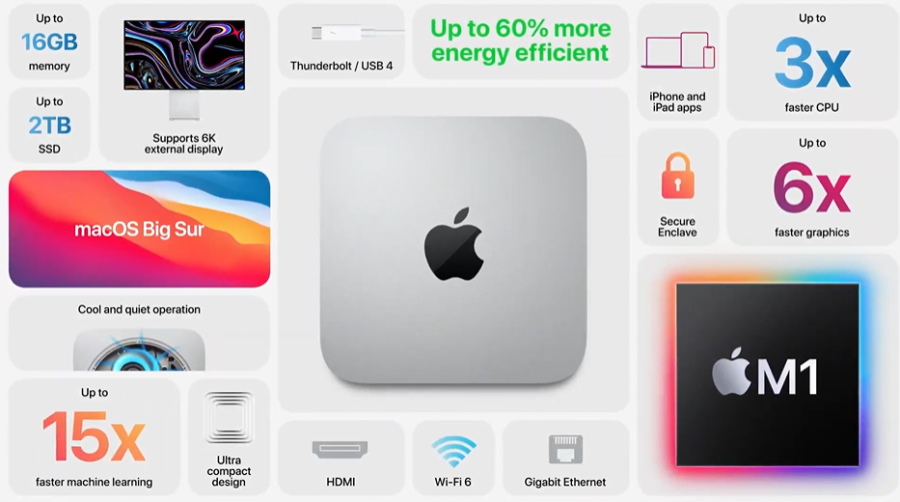Nevertheless, the new Apple M1 chip has certainly injected new life into the machine as the last time that Mac mini received some hardware upgrade was back in 2018. According to Apple, these are some of the performance improvement that the new SoC will able to provide via Mac mini: Compile code in Xcode up to 3x faster. Play graphics-intensive game such as Shadow of the Tomb Raider with up to 4x higher frame rates. Render a complex timeline in Final Cut Pro up to 6x faster. Use up to 3x as many real-time plug-ins in Logic Pro. Increase the resolution of a photo in Pixelmator Pro up to 15x faster. Utilize ML frameworks like TensorFlow or Create ML, accelerated by the M1 chip. Additionally, the Mac mini also now able to support up to one 6K display and one 4K display at the same time. However, the M1-based model has fewer Thunderbolt ports than its Intel-based predecessor at only two ports although they do support the newer USB 4 standard.
Not only that, the M1-based Mac mini also supports only up to 16GB of RAM as compared to the older Intel-based model that goes up to 64GB although you can still fit the new model with up to 2TB solid state drive. That being said, the M1 chip is using unified memory architecture though which is different from the standard DDR4 architecture on the Intel-based Mac mini. Together with the support for the newer Wi-Fi 6 standard, the M1 chip inside the Mac mini also comes standard with 8-core GPU. According to Apple Malaysia’s website, the compact desktop machine can be obtained with a starting price of RM 2999 for the variant with 256GB solid-state drive while the 512GB variant starts at RM 3799 instead.
However, it is not yet available for purchase at the moment though. We will keep you posted once the availability status gets updated by Apple, so stay tuned.

